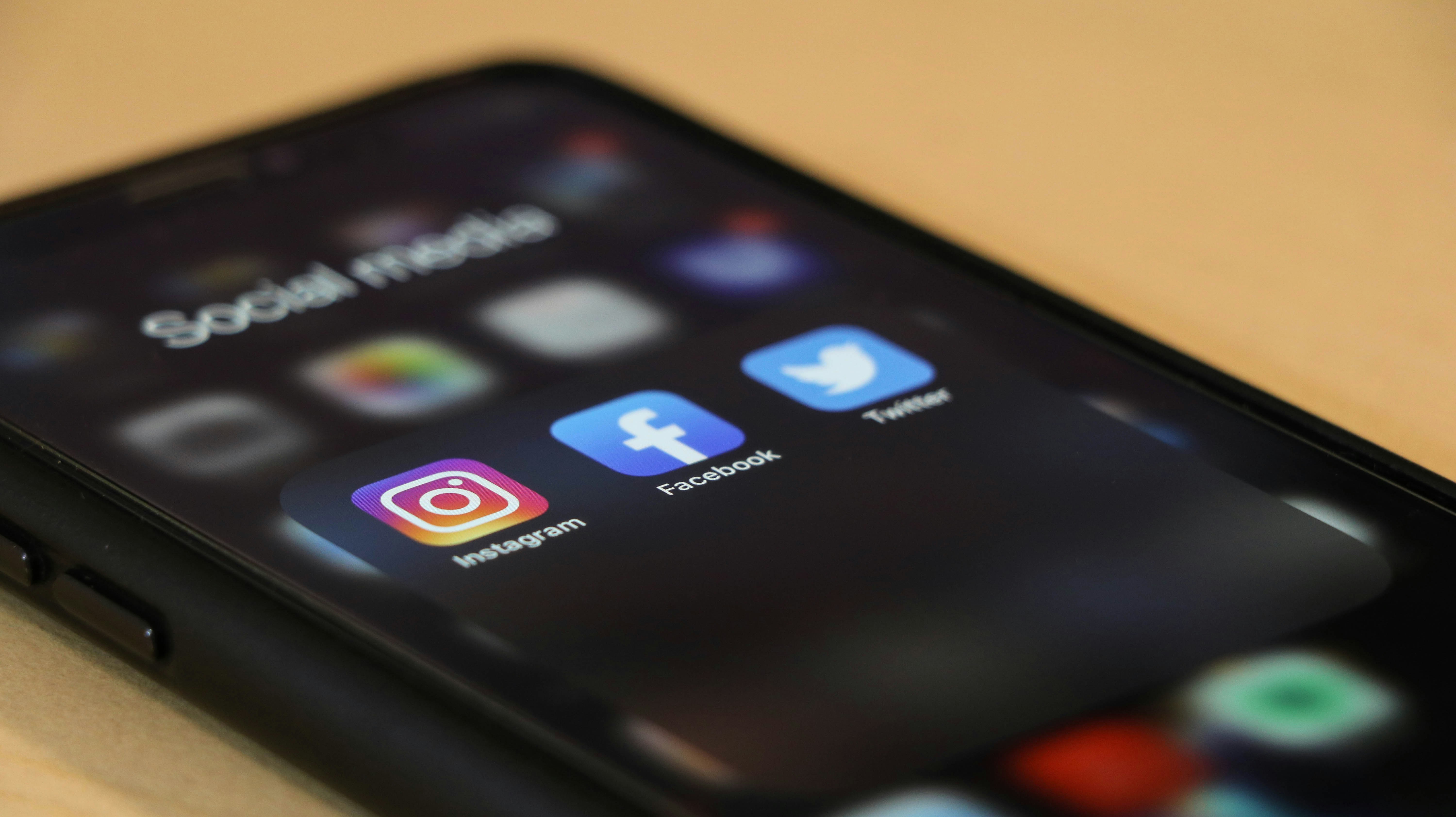
In the fast-paced world of digital marketing, the integration of Artificial Intelligence (AI) into marketing communications stands as a groundbreaking revolution.
AI, with its machine learning capabilities, is transforming how brands connect with their audiences, making interactions more personalized and experiences richer.
By leveraging AI’s power, companies can now craft campaigns that resonate deeply with their target audiences, optimize their strategies on the fly, and unearth insights that were previously hidden in vast oceans of data.
This shift not only elevates the customer experience but also provides a competitive edge in an increasingly crowded marketplace.
In this article, we will explore how AI is reshaping the landscape of marketing communications from a machine learning perspective.
Key Takeaways
- AI in Marketing Transforms the Way Brands Understand and Connect With Consumers
- Machine Learning Drives Personalized Content Creation, Enhancing Customer Engagement
- Predictive Analytics Optimizes Marketing Campaigns for Better Targeting and Efficiency
- Ethical Considerations Are Crucial When Implementing AI in Content Creation and Marketing
- Advanced AI Tools and Platforms Enable Real-Time Analytics, Improving Campaign Performance and Strategy Adaptability
Understanding AI’s Role in Modern Marketing Communications

Bringing Artificial Intelligence (AI) into marketing communications marks the start of a new chapter in understanding, connecting with, and pleasing customers on different channels. By delving into AI, companies are now using complex algorithms and machine learning to go through huge amounts of data, revealing insights into consumer behavior like never before.
This blend of tech and marketing not only helps create content that truly speaks to the audience but also sharpens digital advertising tactics, making sure messages hit the mark perfectly in timing and targeting.
As we delve into the basics of AI in marketing, we see its game-changing impact on understanding customers, improving content creation, and shaping digital advertising strategies. It’s clear that AI isn’t just another tool; it’s a key turner in designing personalized, efficient, and lively marketing efforts.
The Basics of AI in Marketing
At the heart of AI in marketing lies the ability to gather, analyze, and implement findings from a complex web of consumer data through machine learning and artificial intelligence technologies. This process enables businesses to predict customer preferences and tailor marketing messages with precision: a game-changer in the realm of marketing communications. By harnessing AI, companies are now building smarter strategies that not only elevate brand awareness but also enhance the overall customer experience.
| Aspect | Benefit |
|---|---|
| Data Analysis | Precise customer insights |
| Personalization | Tailored marketing messages |
| Customer Experience | Enhanced engagement and satisfaction |
How AI Transforms Consumer Insights
AI’s role in transforming consumer insights pivots on its capability to dive deep into data and discern patterns that go unnoticed by the human eye. This revolutionizes how companies understand their customer base: from general demographic details to intricate behavioral patterns, preferences, and even future needs. Such enriched insights enable brands to connect with their customers on a more profound level, fostering loyalty and driving sales.
- Gathering expansive customer data from multiple channels.
- Applying machine learning techniques to analyze and predict behaviors.
- Utilizing these insights to develop more targeted and meaningful marketing strategies.
Enhancing Content Creation With Machine Learning
Machine learning is revolutionizing content creation by empowering machines to understand and generate text in a way that feels personally tailored to each reader. This emerging facet of artificial intelligence, known as natural language generation, translates data into readable, engaging stories or information, addressing the audience’s interest with great precision:
- Automated copywriting tools produce high-quality, relevant content for blogs, social media posts, and email marketing campaigns.
- Chatbots and virtual assistants engage users with instant, personalized responses, enhancing customer service and support.
- Predictive text and content recommendations keep the audience engaged and increase time spent on digital platforms.
The Impact of AI on Digital Advertising Strategies
The implementation of AI in digital advertising transforms the landscape, enabling businesses to refine their strategies with unmatched precision: AI technologies facilitate the optimization of ad placement and timing based on predictive analytics, significantly increasing the relevance and effectiveness of marketing campaigns. This not only maximizes brand exposure but also enhances user engagement, driving a more favorable return on investment.
| Strategy Element | AI-Driven Improvement |
|---|---|
| Ad Placement | Optimized for maximum relevance |
| Timing | Strategically synchronized with user behavior |
| User Engagement | Enhanced through personalized content |
Crafting Personalized Customer Experiences With AI

Leveraging the power of artificial intelligence (AI) in integrated marketing communications profoundly transforms how brands interact with their customers, making personalized customer experiences not just an aspiration but a reality.
AI-driven personalization leverages deep learning and machine learning algorithms to craft messages and experiences that resonate deeply with each individual, taking into account their unique preferences and behaviors.
This ability to design dynamic user experiences and map out customized customer journeys marks a significant leap forward in how companies approach marketing, making every interaction feel tailor-made.
By integrating AI, businesses are not just reaching their audience but are engaging them in a way that feels both personal and relevant.
The Power of AI-driven Personalization
The power of AI-driven personalization in marketing is transformative, enabling brands to precisely tailor their communications and offerings to meet the ever-changing desires of their consumers. By analyzing individual customer data, AI helps companies anticipate needs and preferences, delivering content and recommendations that strike a personal chord with each recipient. This level of personalization not only boosts customer engagement but also strengthens loyalty and trust in the brand:
| Customer Aspect | Impact of AI-driven Personalization |
|---|---|
| Engagement | Significantly increased through relevant recommendations |
| Loyalty | Deepened by experiences that feel uniquely crafted |
| Content Relevance | Enhanced by anticipating and meeting individual needs |
Designing Dynamic User Experiences
By harnessing AI, companies are now adept at creating dynamic user experiences, that seamlessly adapt to each customer’s preferences and behaviors in real-time. This innovative approach ensures that every digital interaction, from navigating a mobile app to scrolling through a social media feed, is highly engaging and precisely what the user seeks at that moment. It’s this level of attentiveness and adaptability that elevates the customer journey, making technology feel more human.
Machine Learning for Customer Journey Mapping
Machine learning is redefining the art of customer journey mapping, allowing businesses to analyze and predict the myriad ways customers interact with their brand online and offline. This groundbreaking use of AI maps out sophisticated, multi-channel journeys that cater to individual preferences and behavior, providing a blueprint for delivering personalized experiences at every touchpoint. It’s this meticulous planning and execution that transforms customer engagement into a seamless, memorable journey.
Optimizing Campaigns Using Predictive Analytics

The path to refining marketing efforts is more and more directed by the accuracy of predictive analytics. This area of data science is key in the toolkit of AI-enhanced marketing, allowing brands to predict future consumer behaviors using past data.
As we explore how predictive models can better target audiences, we’ll also share some standout success stories where AI-led campaigns have raised the bar for marketing success.
Each example not only proves the transformative impact of machine learning on marketing tactics but also lights the way for businesses looking to tap into the predictive power of AI to take their communications up a notch.
Introduction to Predictive Analytics in Marketing
Predictive analytics ushers in a new era of marketing precision, enabling companies to harness past and current data to forecast future customer actions and trends. By using machine learning algorithms, marketers can now predict with greater accuracy which products, services, or messages are most likely to resonate with different segments of their audience. This insightful approach significantly increases the efficiency and effectiveness of marketing campaigns, ensuring resources are allocated to strategies with the highest potential for success.
| Component | Impact on Campaigns |
|---|---|
| Customer Segmentation | More precise targeting |
| Product Recommendations | Higher engagement and conversion rates |
| Campaign Timing | Optimized for maximum impact |
Improving Targeting With Predictive Models
Predictive models in marketing harness the power of AI to fine-tune the targeting process, allowing for campaigns that are not just broad strokes but precisely aimed arrows. By analyzing patterns in customer data, these models predict who is most likely to respond to a specific message, thus optimizing ad spend and increasing the likelihood of a successful conversion. This strategic application of machine learning ensures that marketing efforts are more relevant, personalized, and ultimately, more effective in reaching the intended audience.
Revolutionizing Social Media With AI Tools

The landscape of social media marketing is undergoing a significant transformation, thanks to the integration of artificial intelligence (AI) tools.
These powerful AI innovations are not just changing the game; they’re setting new rules, enabling brands to engage with their audiences more intimately than ever before.
From chatbots that offer personalized customer service round the clock, to sophisticated algorithms that gauge the mood and sentiments of social conversations, AI is empowering marketers to craft highly personalized content at unprecedented scales.
This section walks through the ways AI is automating engagement, analyzing social sentiment, and personalizing content across social media platforms, offering a glimpse into a future where marketing communications are more dynamic and impactful.
Automating Engagement With Chatbots
Chatbots, powered by AI, are transforming social media platforms into bustling hubs of customer interaction. By providing instant responses and navigating queries efficiently, these virtual assistants ensure that customer engagement is never left on the back burner, no matter the hour. This constant presence not only elevates the user experience but also bolsters brand reputation by demonstrating commitment and responsiveness.
Analyzing Social Sentiment With AI
AI’s ability to analyze social sentiment is transforming how brands understand and respond to their audience’s feelings and attitudes on social media. By sifting through vast quantities of data, including comments, likes, and shares, AI algorithms identify trends and shifts in public sentiment, enabling marketers to tailor their strategies in real time. This ensures that the content not only resonates with the audience but also aligns with their current perceptions and emotions, deepening the connection between the brand and its consumers.
Personalizing Social Media Content at Scale
The integration of AI into social media marketing heralds a new era of personalizing content at scale, fundamentally transforming how brands connect with their audience. Through the power of machine learning, companies can now automate the creation of personalized content that caters to the unique preferences and behaviors of individuals across vast user bases. This shift not only streamlines content production but also presents a more relevant and engaging experience to each user, fostering deeper relationships between brands and their followers.
- AI analyzes user interaction and behavior to segment audiences more effectively.
- Machine learning algorithms generate personalized content recommendations for each user segment.
- Automated systems then deliver this content across various social media platforms, ensuring each piece reaches its intended audience with precision, thereby increasing engagement and strengthening brand loyalty.
Enhancing Creativity and Content With Generative AI

The landscape of content creation and marketing materials is undergoing an extraordinary transformation, thanks to the advent of Generative AI.
This remarkable technology is revolutionizing the way marketers conceive and produce content, offering tools that not only enhance creative processes but also tailor marketing messages with unprecedented accuracy and relevance.
As we delve into the rise of Generative AI in content creation, we will uncover innovative examples that showcase its potential to transform marketing materials, from social media posts to comprehensive advertising campaigns.
Furthermore, we explore the critical conversation surrounding the ethics of using Generative AI in marketing, encouraging a balance between innovation and integrity in communication strategies.
The Rise of Generative AI in Content Creation
The rise of Generative AI in content creation marks a significant shift in the marketing landscape, introducing tools that bring a new level of efficiency and innovation to content strategies. By learning from vast datasets, these AI systems can produce original, engaging content that resonates with audiences, pushing the boundaries of creativity while maintaining brand voice consistency. Marketers now find themselves equipped with the ability to generate personalized content at scale, transforming both the speed and relevance with which they communicate with their target audience.
Examples of Generative AI Transforming Marketing Materials
Generative AI is revolutionizing the way marketing materials are created, offering remarkable examples of how this technology elevates promotional content. From crafting personalized email campaigns that speak directly to the consumer’s interests to producing dynamic video advertisements that adjust in real-time based on viewer reactions, Generative AI enables marketers to forge deeper connections with their audience. Through these applications, brands are witnessing a notable improvement in engagement rates and overall campaign performance, illustrating the power of AI in breathing life into creative concepts.
The Ethics of Using Generative AI in Marketing
The ethics of using Generative AI in marketing stirs a significant conversation among professionals and scholars alike: the fine line between creativity and deception must always be respected. Utilizing AI to generate content can enhance engagement and personalization yet poses a risk if not transparently declared, potentially misleading customers about the human versus machine role in content creation.
| Aspect | Concern | Resolution |
|---|---|---|
| Transparency | Potential consumer deception | Clear disclosure of AI’s role |
| Authenticity | Loss of human touch | Maintain human oversight |
| Intellectual Property | Ownership of AI-generated content | Establish clear copyright guidelines |
Measuring and Analyzing Performance With AI

Delving into measuring and analyzing performance, the spotlight turns towards the pivotal role of Artificial Intelligence (AI) in providing real-time analytics, offering a new dimension to integrated marketing communications.
By employing advanced AI methodologies, businesses unlock the ability to track performance metrics with unparalleled speed and accuracy.
This section not only explores the sophisticated tools and platforms enabling AI-driven marketing measurement but also discusses how insights gained from AI can guide adjustments in marketing strategies for optimum outcomes.
It’s about transforming raw data into actionable intelligence, ensuring marketing efforts are not just seen but are also impactful and resonate with the target audience.
AI Methodologies for Real-Time Analytics
AI methodologies are revolutionizing the way businesses approach real-time analytics in marketing. By integrating machine learning algorithms, companies can now process and analyze data at an unprecedented speed, revealing valuable insights into campaign performance, customer behavior, and market trends almost instantaneously. This agile analysis supports swift, data-driven decisions, enhancing the effectiveness and relevance of marketing communications in a fast-paced digital landscape.
Tools and Platforms for AI-driven Marketing Measurement
In the evolving landscape of integrated marketing communications, the emergence of AI-driven tools and platforms has marked a significant turning point. These cutting-edge solutions, such as HubSpot, IBM’s Watson, and Google Analytics, not only facilitate real-time data analysis but also empower marketers to measure campaign performance with unprecedented precision. By leveraging these platforms, companies can gain deep insights into customer behavior, making it possible to refine strategies and enhance engagement effectively:
- HubSpot offers a comprehensive suite of tools for content management, social media analytics, and email marketing, all powered by machine learning to improve engagement and conversion rates.
- IBM’s Watson provides advanced analytics capabilities, utilizing natural language processing and AI to uncover deep consumer insights from large datasets.
- Google Analytics integrates AI to offer sophisticated data analysis, tracking user interactions across websites and apps to optimize marketing efforts.
Adjusting Strategies Based on AI Insights
Through AI insights, companies have the unique ability to adapt their marketing strategies dynamically. This real-time adaptation means marketers can pivot campaigns swiftly in response to changing consumer behaviors or emerging market trends. It’s this agility, powered by machine learning, that enables brands to maintain a competitive edge, ensuring their marketing communications remain effective and resonant with their target audience.
Conclusion
Leveraging AI in integrated marketing communications presents a monumental shift towards more personalized, efficient, and effective marketing strategies.
Through machine learning and artificial intelligence, businesses can now analyze vast data sets, gaining deep insights into consumer behavior and preferences.
This enables the creation of content that resonates on a personal level, optimization of digital advertising through precise targeting and timing, and enhancement of customer engagement across various platforms.
The impact of AI extends to the transformation of content creation, with generative AI producing relevant and engaging materials, pushing the boundaries of creativity while maintaining ethical considerations.
Additionally, AI-driven tools and methodologies offer real-time analytics, allowing for agile adjustments to marketing strategies based on actionable insights.
Overall, the integration of AI into marketing communications significantly enriches the consumer experience, driving loyalty and sales through innovative and dynamic approaches.

Comments